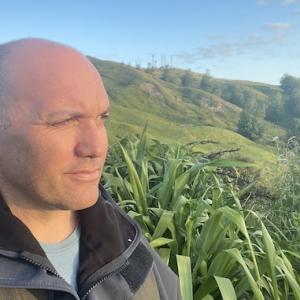Recent innovations in the means by which location information is obtained from vagile animals have catalysed the development of ‘movement ecology’ (see Nathan et al., PNAS, 2008), a new scientific sub-discipline which seeks to understand what factors influence the ecology and behaviour of animals by quantifying how, where, and when they move, and by identifying what factors influence the course of their ‘lifetime tracks’. In the context of the ‘movement ecology’ paradigm, I will describe some of the results of our study of common brushtail possums in New Zealand, particularly with regard to how fine-scale knowledge of the movement and activity patterns of this species can be used to improve control practices in areas where possums constitute a significant contribution to the local economies of rural Maori communities.
He Kōrero | Our Stories
Tairāwhiti local Manu Caddie is a vocal critic of forestry companies engaged in unsustainable land practices in the rohe. He shares his insights on what needs to change".
Last year a new species of fresh water golden clam was discovered in the Waikato awa. Its discovery spurred whānau, hapū and iwi to learn about the invasive species and to mobilise to stop its spread.
Neuroscientist Nicole Edwards is establishing her own lab at the University of Auckland and is eager to tautoko students interested in a career in brain research.


